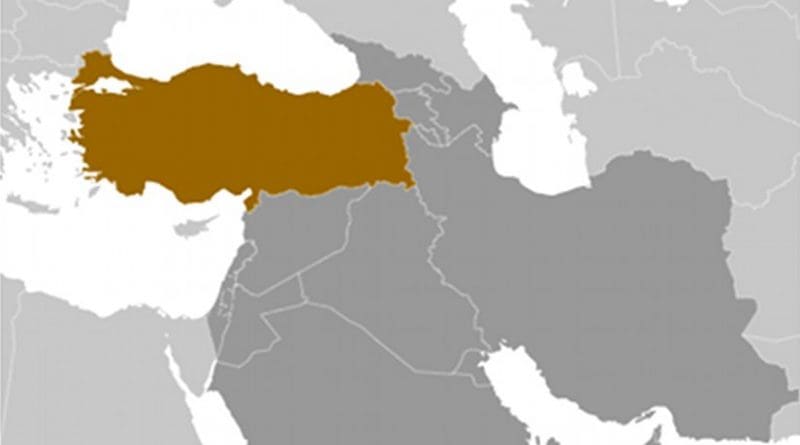Arab Spring Has Replaced Egypt With Turkey As Major Player In Middle East – OpEd
By Arab News
In the normal course of events, the visit to Jeddah of Turkish President Abdullah Gul this week and his talks with Custodian of the Two Holy Mosques King Abdullah would raise little attention. Relations between the two countries are excellent and have been for a long time. There is no reason whatsoever to imagine that they will do anything other than continue to grow.
But these are not normal times in the Middle East. No state, apart from the Kingdom and most other GCC countries, have been untouched by the Arab Spring. To that small list Turkey must be added because, although a European state, it is by reason of history, culture and location firmly part of the Middle East. Regrettably, ever since the Ataturk revolution, Turkey has stood facing uniquely westward, its back turned on the Middle East. For the past 60 years, moreover, its eyes have been fixed resolutely on a future in Europe and, since 1963, specifically a future in what is now the European Union.
That West-only focus began to dissolve with the election nine years ago of the first AKP government led by President Abdullah Gul then as prime minister and, since 2003, under the premiership of Recep Tayyib Erdogan, the party’s founder. It is not that the AKP has dropped Europe from its sights; far from it. It is that it has widened Turkey’s political vision to reflect its geographical position, its history and culture and its strategic interests.
The opening to the Middle East was noticed by the rest of the world because of Ankara’s far greater support for the Palestinians, especially during the 2009 Gaza war, and a concomitant crumbling in the previously firm relationship with an Israel famously described by Erdogan as the “main threat to regional peace.” In fact, there was far more than empathy with the Palestinians and anger with the Israelis. There was a reaching out to Iraq, seen in dozens of economic agreements with Baghdad but complicated by the presence of anti-Turkish PKK guerrilla bases in northern Iraq. There was also a reaching out to Iran with an attempt to find a diplomatic solution to the still burning international row over its nuclear intentions. But it is the Arab Spring that has firmly changed Turkey’s standing in the region.
Until this year, there were two prime motors of peace and stability in the Middle East: Saudi Arabia and Egypt. The Arab Spring has temporarily taken Egypt out of the equation although it is still working to promote peace between Palestinians and Israelis; this week’s news of Egyptian-sponsored talks between the Israelis and Hamas over the possible release of Israeli soldier Gilad Shalit is proof of that.
But it is Turkey that is now the other main driving force for peace and stability in Middle East, alongside Saudi Arabia. It has tried to use its influence in Damascus to persuade the government there to end its bloody crackdown on protests and tried to do the same in Libya and mediate a peaceful solution and with Qaddafi’s exit. That failed because of Qaddafi’s determination to remain in power.
Like Saudi Arabia, Turkey is a driving force for sanity and peace in the region. It is now seen as such.
That makes the relationship between the two countries all the more important.

